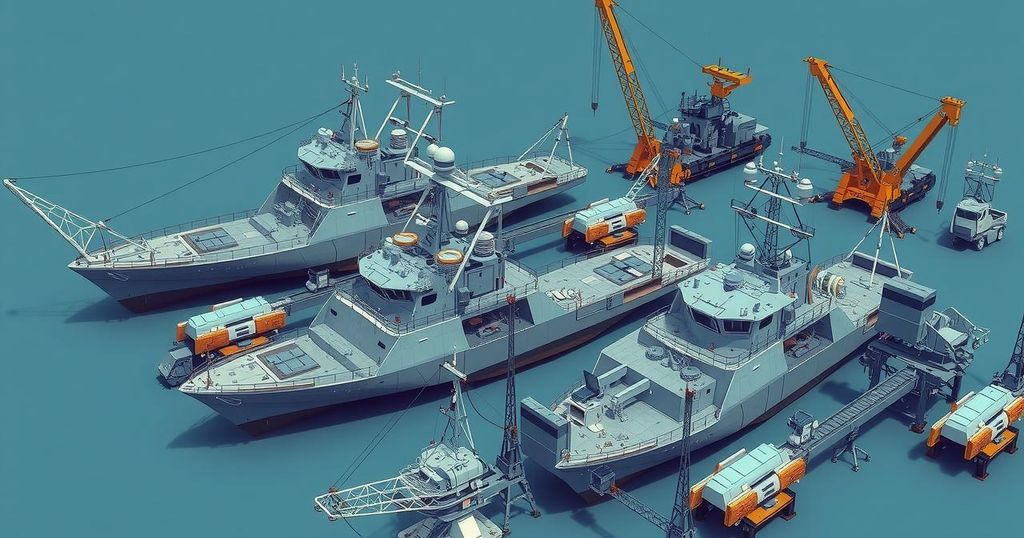Brazil plans to construct eleven NPa500MB offshore patrol vessels under the PRONAPA program, with a significant focus on local components. The estimated total cost is 2.8 billion reais (~476 million USD), with plans to deliver the vessels between 2025 and 2037. The program aims to enhance maritime security and support international initiatives.
Brazil is set to initiate the construction of eleven NPa500MB offshore patrol vessels (OPVs), according to a report by Brazil Defense Brief on February 24, 2025. The Brazilian Navy’s Naval Systems Design Center (CPSN) has delivered the basic engineering plan for these 500-ton vessels to Emgepron, a state-owned company managing naval projects. This initiative falls under the Patrol Vessel Acquisition Program (PRONAPA), emphasizing the use of locally sourced components for the vessels, which are intended for monitoring the Exclusive Economic Zone (EEZ), search and rescue missions, and the combat against illegal activities like fishing.
The estimated cost for constructing eight NPa500MB OPVs is approximately 2.8 billion reais (around 476 million USD), while three additional vessels are designated for mine countermeasures. In August 2023, the project received national priority status by being included in the Growth Acceleration Program (New PAC). Emgepron aims to promote the vessel design to allied nations across South America, Africa, and Asia, with shipbuilding taking place in local shipyards.
The initial budget for the first unit is projected at 250 million reais (approximately 42.5 million USD), and a Multi-Year Plan (PPA) for 2024-2027 allocates 5.26 billion reais (about 894.2 million USD) to the program, extending through 2035. The NPa500MB vessels will feature advanced capabilities, including a Bofors Mk4 40 mm gun and two Oerlikon GAM-B01 20 mm machine guns. Various integrated systems enhance combat effectiveness, navigation, and communication capabilities.
In conclusion, Brazil’s construction of eleven NPa500MB offshore patrol vessels marks a significant step in enhancing national maritime security. The project prioritizes domestic production, technological collaboration, and participation in international security efforts. Through the use of advanced engineering and a multi-year investment plan, Brazil aims to strengthen its operational efficiency in maritime surveillance and protection.
Original Source: armyrecognition.com






